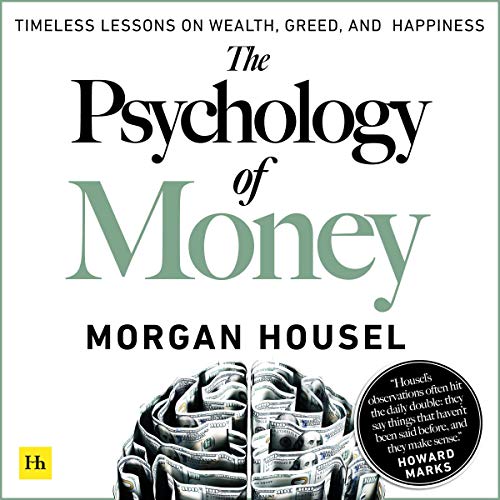One of my goals for this year is to read one book a week and it seemed like ‘The Psychology of Money’ by Money Housel was good choice given its popularity. I wanted to understand what the fuss was all about given the fact that 1st principles have already been discussed in thousands of book before.
I am an avid reader of the books in the Personal Finance and Self Help Category. So, my expectations from the book were really not that high. After all, ‘Personal Finance’ can be summed up in two lines:
Spend less than you earn and invest the difference.
— Abhishek (@0cool1) January 6, 2021
Don’t get into stupid debt.
Two line summary of personal finance philosophy.
People’s thinking is a product of the times that they live in!
Therefore, it was a pleasant surprise that I could not put down the book once I started. The Psychology of Money sheds new light on how people think about finances.
One basic tenet that the book talks about is why your parents think differently about money than you. Frankly, before reading this book, I had a hard time explaining to myself why my parents did not take certain no-brainer financial steps/decisions that they should have.
The book explains that people are a product of their times. A person growing up in 60 and 70s saw great poverty in India. We were a fledgling nation trying to find its foot on the world stage. Our economy was weak, ‘License Raaj’ ruled.
Sometimes, it astonishes me that the Government put a cap on the number of scooters that be produced at a factory. You had a license for producing only a certain number of scooters. Imagine that Govt. is stopping you from producing all that you can. In today’s India, it is not only absurd but unthinkable.
So, given that times were different, people’s thought was shaped differently. Morgan Housel goes on to explain that someone brought up in the Great Depression had a very different approach to personal finance and even a period of a decade influenced the personal finance thought vastly.
Another concept the author explores is that luck plays a huge role in your financial success. Bill Gates had a one in a million opportunity that he was enrolled at a school that had computers. It is easy to overestimate the role of your ‘hard work’ and underestimate the role of stars aligning perfectly tp make your financial success happen.
Average decisions taken when everybody around you is committing hara-kiri is what leads to success.
The author explains that Warren Buffet went through 33 recessions during his investing career and still did not panic sell. That’s what makes Mr. Buffet an exceptional investor.
Final Rating: The Psychology of Money – An Instant Classic
Overall Review: 4.7/5 stars.
You know the feeling you have when find a hidden gem of a movie, podcast or book. Yes, this is one of those. An Instant Classic, which will go in my list of books to read every year.
Books that I re-read every year:
— Abhishek (@0cool1) January 2, 2021
1. The Compound Effect
2. Think and Grow Rich
3. Mindset
4. The Richest Man in Babylon
What are some your favourite re-reads?
What are your thoughts about the book? Let me know in the comments. Happy Reading!


